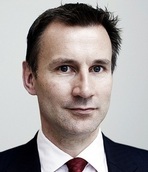CQC finds 'defensive culture' in social care when dealing with complaints
 Wide variations in the way complaints are dealt with across the NHS, primary care and adult social care services in England could be putting people off from making complaints about bad experiences.
Wide variations in the way complaints are dealt with across the NHS, primary care and adult social care services in England could be putting people off from making complaints about bad experiences.
The Care Quality Commission (CQC) published its findings today which revealed too many service providers have a defensive culture when dealing with complaints rather than one where complaints are listened too and acted on.
The CQC also found the confusing procedure system is putting people off from making complaints and wants care providers to be more responsive to formal complaints.
Although the regulator found examples of good practice, the CQC wants providers to focus on ensuring concerns are dealt with in a timely and serious manner.
Prof Sir Mike Richards, chief inspector of hospitals at the CQC, who led the review said: "A service that is safe, responsive and well-led will treat every concern as an opportunity to improve, will encourage its staff to raise concerns without fear of reprisal, and will respond to complaints openly and honestly.
"Unfortunately this is not happening everywhere. While most providers have complaints systems in place, people’s experiences of these are not consistently good.
"Through our inspections, we have a big role to play in supporting this change. We will continue to hold health and adult social care services to the high standards that people both expect and deserve."
The report found more services were providing good responses to complaints procedures than bad, but the CQC wants the adult social care sector to encourage an open culture where formal concerns are welcomed and reacted to in a way which meets the regulators’ expectations.
Health Secretary, Jeremy Hunt said: "One of the biggest lessons of the tragedy at Mid Staffs is the need to listen and act on all complaints. 
"So as part of our drive to confront poor care we’re making sure people know how to complain and transforming complaints handling – now a crucial part of the CQC’s tough, independent inspection regime. Today’s report shows both that that progress has been made and that there’s still more to do."
Dr Katherine Rake, chief executive of Healthwatch England, said: "It's really encouraging to see the CQC recognising the huge importance of complaints and really starting to use people's concerns to help guide the inspection of our hospitals, GP surgeries and care homes to ensure they're up to scratch.
"But complaints handling cannot just be about driving improvement. Fundamentally complaints are stories about what happens when things go wrong and people are failed. First and foremost every case must be dealt with compassionately with those involved kept informed about how their complaint has made a difference."
Latest News
 29-Jul-24
Dementia Bus gives carehome.co.uk staff insight into life with dementia
29-Jul-24
Dementia Bus gives carehome.co.uk staff insight into life with dementia
 01-Mar-24
Find out the top care homes in 2024
01-Mar-24
Find out the top care homes in 2024
 21-Mar-23
UK's top care homes in 2023 revealed
21-Mar-23
UK's top care homes in 2023 revealed
 03-Jan-23
carehome.co.uk launches free care helpline
03-Jan-23
carehome.co.uk launches free care helpline
 13-Dec-22
5 mins with Emily Whitehurst, chief operating officer for Constantia Healthcare
13-Dec-22
5 mins with Emily Whitehurst, chief operating officer for Constantia Healthcare